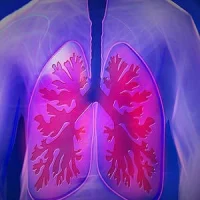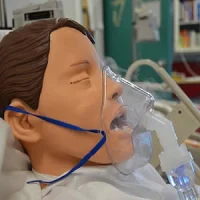Research published today in the American Journal of Respiratory and Critical Care Medicine sheds light on the economic toll on survivors of acute respiratory distress syndrome. Nearly fifty percent of survivors who worked before they were ill were not working after a year, and lost nearly two-thirds of their annual income. The researchers estimated that survivors lost an average of US$27,000 in earnings.
The multicentre study recruited 922 survivors, who were interviewed six and 12 months after the onset of their ARDS. Each survivor was asked about employment status, hours working per week, how long before they returned to work following hospital discharge, perceived effectiveness at work and major change in occupation.
Of the 922 survivors, 386 (42%) were employed prior to ARDS. The previously employed survivors were younger, predominantly male and had fewer pre-existing health conditions compared with survivors not employed before ARDS.
Of the 379 previously employed patients who survived to 12-month follow-up, nearly half (44 percent) were jobless a year after discharge. Although 68 percent of survivors eventually returned to work during the 12-month follow-up period, 24 percent of these survivors subsequently lost their jobs.
Throughout the 12-month follow-up, non-retired jobless survivors had an average estimated earnings loss of about $27,000 each, or 60 percent of their pre-ARDS annual earnings. The research team also saw a substantial decline in private health insurance coverage (from 44 to 30 percent) and a rise in Medicare and Medicaid enrollment (33 to 49 percent), with little change in uninsured status.
For the 68 percent of ARDS survivors who returned to work by the end of the follow-up year, the median time to return was 13 weeks after discharge. Of those, 43 percent never returned to the number of previous hours worked, 27 percent self-reported reduced effectiveness at work, and 24 percent later lost their jobs.
The team found that older, non-white survivors, and those experiencing a longer hospitalisation for their ARDS had greater delays in returning to work. Severity of illness and sex, however, did not affect time to return to work.
"These results cry out for those in our medical field to investigate occupational rehabilitation strategies and other interventions to address the problem of post-discharge joblessness," says senior author, Dale Needham, FCPA, MD, PhD professor of medicine and of physical medicine and rehabilitation at the Johns Hopkins University School of Medicine. "Health care providers need to start asking themselves, 'What can we do to help patients regain meaningful employment,' and not just concern ourselves with their survival."
"We believe that ARDS survivors are often jobless due to a combination of physical, psychological and cognitive impairments that may result, in part, from a culture of deep sedation and bed rest that plagues many ICUs. Perhaps if we can start rehabilitation very early, while patients are still on life support in the intensive care unit, getting them awake, thinking and moving sooner, this may result in greater cognitive and physical stimulation and improved well-being. This change in culture can occur and is part of regular clinical practice in our medical ICU at The Johns Hopkins Hospital."
With this data, the researchers say that they hope to better identify specific risk factors for joblessness and to inform future interventions aimed at reducing joblessness after ARDS.
This study is part of the ARDS Network Long-Term Outcome Study (ALTOS), a national multicentre prospective study longitudinally evaluating ARDS survivors recruited from 2006 to 2014, including patients from 43 hospitals across the U.S.
In an email to ICU Management & Practice, Eileen Rubin, JD, President of ARDS Foundation, welcomed the study, and commented:
“This study addresses one of the most profound issues for patients who survive hospitalisation due to ARDS and the complications that result. Employment is among the greatest concerns to those in the ARDS Community. After speaking to thousands of survivors over the last sixteen years, I concur with the researchers’ findings. Many people’s identity is related to their employment, and to find themselves, after surviving this critical illness, unable to perform their profession is devastating. The loss of income due to unemployment, change in hours, or change in employment, as a result of the serious illness they survived, takes a terrible toll, especially given that their medical costs have risen astronomically due to the lengthy hospitalisation."
"One ARDS survivor told me that she was only allowed twelve weeks off after hospital discharge before returning to work. She retuned to work, but unable to properly focus, to sustain the hours required for her demanding job, her employer let her go. Another survivor told me that his employer was unable to keep his position at a small company available because he was hospitalised for three months. Other survivors have asked why they are struggling at a position that once was so simple, and satisfying, after returning to work post ARDS. This aspect is especially disconcerting to the ARDS survivor who is struggling emotionally and physically in many areas. Add to this the struggles that survivors face when dealing with insurance companies who will not cover major portions of their hospitalisation and the result can be beyond devastating. Any changes that can be made while an ARDS patient is in the ICU that would focus on their ability to return to work is applauded by ARDS Foundation.”
References:
Kamdar BB, Huang M, Dinglas VD, Colantuoni E, von Wachter TM,
Hopkins RO, Neeedham M; National Heart, Lung, and Blood Institute Acute
Respiratory Distress Syndrome Network (2017) Joblessness and lost earnings afer ARDS in a 1-year national multicenter study. Am J Respir
Crit Care, 27 April. doi: 10.1164/rccm.201611-2327OC
Latest Articles
Employment, acute respiratory distress syndrome, income, ARDS
Research published today in the American Journal of Respiratory and Critical Care Medicine sheds light on the economic toll on survivors of acute respirat...










